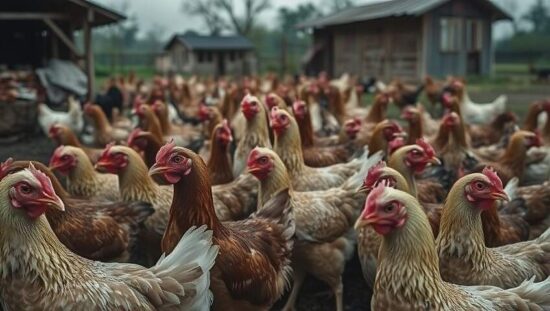The Saarland region of Germany has implemented an immediate mandatory housing order for all poultry, a response to a confirmed outbreak of avian influenza detected in a wild bird within the municipality of Eppelborn. The announcement, made Wednesday by the State Office for Consumer Protection, signals a rising concern over the spread of the disease and raises questions about the efficacy of current preventative measures.
The enforced stall requirement, effective Thursday, mandates that all poultry – including chickens, turkeys and ducks – be kept in enclosed stables or under specifically designed protective structures. Relatedly, all events involving birds, previously approved or otherwise, are now prohibited throughout the Saarland. This sweeping action underscores the severity with which authorities are approaching the situation, though critics are already questioning the broader impact on local farmers and the potential for economic disruption.
While officials cite the need to contain the virus and prevent its further propagation, the timing of the outbreak, coupled with increasingly frequent avian influenza recurrences across Europe, highlights potential flaws in existing biosecurity protocols. The decision to impose the restriction is not without recourse; individuals and organizations affected have one month to lodge a legal challenge against the ruling at the Saarlouis Administrative Court.
Failure to comply with the mandatory housing order carries significant financial penalties, with violations punishable by fines up to €30,000. The incident also provides a critical opportunity for a review of the current national framework for avian influenza risk mitigation, prompting debate on whether existing strategies are sufficient to safeguard the poultry industry and public health. The rapid escalation of this situation demands a proactive and potentially costly effort to prevent a wider crisis and questions linger as to whether reactive measures can truly stem the tide of this escalating threat.





